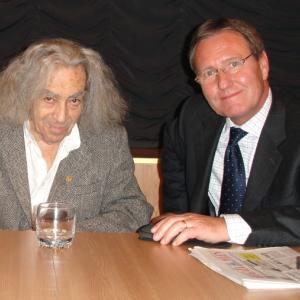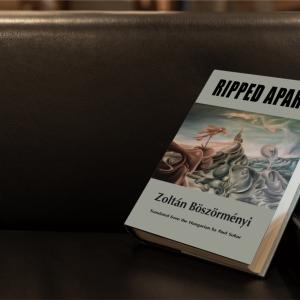
Far from Nothing
This is a typically – or uniquely – men’s novel. Past the midpoint of a Dante-like guided tour of life, Rudolph makes an average living in a car dealership as a sales manager; not rich but not poor either, married eight years with a seven-year-old son.
All the components of a man’s life are here:
a family that has not reached the point of boredom or hostility;
the car, money, success – the last one so essential in this competitive world of ours. But there’s also something else, something that undermines his health; he’s already past a nervous breakdown, a quasi heart attack, and he’s subject to bouts of anxiety and claustrophobia. A contributing factor may be his Cartesian mindset shaped and refined by his courses in philosophy, which are about to come to a close with a degree.
The action takes place almost in real time, at about the same pace as we read about and live through the events. Each of the 66 chapters is a complete unit of time-place-action-character, a ready-made movie script. The style is direct, lean, and not given to mincing words; the erotic details are plain male talk, his soul-searching self-examinations sincere and hard, Hemmingway style.
The cast of characters fan around the hero, Rudolph, who cultivates his mind, body and soul, seeks self-knowledge through the world, although he has no pangs of conscience. He proclaims with Descartes: “the good is in harmony with our inner self, the beautiful is what our senses process as such.”
Where does the story take place? We do not find out from the names of places and persons, but we do not really care. It is about the man of today and yet the timeless man, who appears at any time, any place, with the same dilemmas. His age though defines him in a way, loaded as he is with personal experiences, he’s still looking forward to more; the same man who doesn’t stay the same.
Death, too, “makes an appearance” in this story, unexpectedly and without reason, and so does raw, undiluted sex. Rudolph does not indulge in pornography, but he’s uncritical of Nina, his classmate, who earns her living in a striptease bar doing fellatio on the customers.
Since we’re talking about a men’s novel – not meant to be a genre label – it should be noted that the novel is also populated by other types, not only negative, hostile figures, but also simple, everyday people we run into the everyday world.
From this world only a thought can take us to another, or perhaps, living for the moment. Every time you read this novel it leads you back to the present moment, and this is what these characters live for and with the story as a projected thought.
János Oberten























